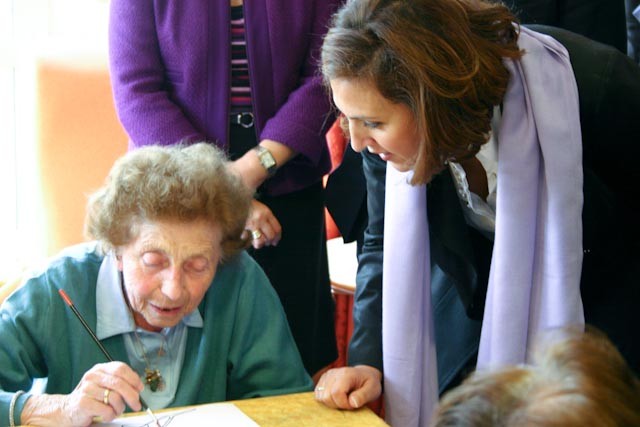When a loved one is diagnosed with dementia, it’s devastating news for all who care. Family and close friends want to give the best care possible to people who suffer from memory loss and declining cognitive abilities. Unfortunately, dementia can only be managed, not cured. Searching for methods and treatment options to minimize deterioration in the memory and thinking abilities of your loved one is the place to start.
Certain practices can help control memory loss and prevent it from aggravating the life of a dementia patient. Continue reading to explore ways to manage dementia and memory loss in patients.
What is Dementia and Memory Loss?
Dementia is a progressive mental condition affecting a person’s memory, thinking abilities, and social behavior. Dementia itself isn’t a disease but a group of symptoms. Several underlying diseases may cause dementia, including Alzheimer’s. In dementia, the brain’s ability to function deteriorates typically, causing difficulties in daily activities. Dementia usually progresses with age but can be reversed if the underlying cause is treatable.
Memory loss is one of the most prominent symptoms of dementia. People with dementia often display confusion, disorientation, and a decline in gross and fine motor skills. Other indicators of dementia include a deterioration in communication, a rapid decline in problem-solving and thinking abilities, difficulty in focusing, planning, and organizing, and an inability to handle complex tasks.
Importance of Caregiving in Dementia
Caregivers or caretakers are people from the family circle or registered nurses who take complete care of dementia patients, help them manage the condition, and prevent it from progressing.
Registered nurses have the right skills to treat and care for dementia patients. Specific fast-track programs or an RN degree online give extensive training to nurses and equip them with the proper knowledge, compassion, and practical knowledge to play their part as responsible caregivers for senior, partially-dependent, or fully-dependent patients. Online degree programs like Registered Nurse (RN) to Bachelor of Science in Nursing (BSN) programs facilitate working RNs to take classes at flexible timing without disrupting their job schedules. Registered nurses with BSN degrees can provide holistic care to patients suffering from any disease, particularly Alzheimer’s and dementia.
A competent caregiver can help dementia patients relieve severe symptoms like depression, disorientation, paranoia, inability to socialize, and hallucinations. The prime responsibility of a caregiver is to help dementia patients perform their daily activities and help them with mental exercises to prevent further deterioration.

Ways to Manage Dementia and Memory Loss
The needs of a person with dementia will change over time. Still, you can use various techniques and caregiving skills to adjust the routines and activities of the person with dementia. You can manage a patient’s dementia and memory loss in several ways. Some of them are discussed as under:
Hire Professional Caregivers
Professional caregivers like registered nurses or nurse practitioners know what it takes to manage a patient’s dementia. Nurses can help the patient control loss of mental faculties, perform prescribed therapies and monitor a dementia patient’s response to certain medications. Professional caregivers focus on fulfilling the dietary needs of dementia patients and modifying their activities to enhance their quality of living.
Medications
The use of certain medications may provide temporary relief from the symptoms of dementia, but they cannot cure it. Doctors can prescribe other medicines to treat the problems that result from dementia, such as depression, insomnia, sleep apnea, or behavioral issues. Common medications to manage dementia include donepezil rivastigmine, galantamine, and memantine. Doctors also prescribe antidepressants, antipsychotics, and anxiolytics to control hallucinations, depression, anxiety, and restlessness.
Therapies
Dementia patients should receive treatments regularly to avoid worsening symptoms. Cognitive simulation and reminiscence therapy are among the most widely-adopted treatments for dementia patients. These therapies aim to prevent the further advance of dementia, increase brain activity, and trigger healthy growth of brain cells.
Dietary Changes
Specific dietary changes can help patients with dementia reduce symptoms and even reverse memory loss. There are various food items that you can add to a dementia patient’s diet to relieve symptoms and reduce the risk of Alzheimer’s.
These food include nuts, beans, fish, leafy greens, olive oil, probiotics and prebiotics, tea, berries, poultry, etc. Using organic foods and animal-based fat have a direct impact on improving brain function. Avoid excessive sugar, trans fats, salt, and foods high in carbs, as they can quickly exacerbate memory loss and worsen dementia.
Use non-starchy vegetables like broccoli, Brussels sprouts, cauliflower, cucumber, and non-root vegetables. These vegetables are high in antioxidants and contain anti-inflammatory components that help prevent cognitive deterioration.
The Keto diet and other low-carb-high-fat diets have a positive impact on brain function, and therefore dieticians recommend these diet programs for people with mental incapability.

Physical Activities
Apart from dietary changes, staying active is vital for cognitive health. It is believed that physical activity can improve memory by increasing blood flow to all parts of your body, including your brain. Professional caregivers emphasize training dementia patients for house chores, cleaning, cooking, gardening, and physical exercises.
If a dementia patient finds a particular physical activity challenging, the caregiver can alter the activity to the person’s ability and choose activities the person loves to do. They can take the dementia patient out for a walk, assist them in sitting on a bench, and help them catch a ball or model with clay or play dough. They can play card games or complete a puzzle, support them in washing dishes or setting the table, and much more.
Social Interaction
Social interaction is among the most important areas each caregiver must focus on. Lack of social interaction may worsen symptoms of dementia, including depression and anxiety. Create more opportunities for people with dementia to meet their family and friends and help them remember their circle of close acquaintances.
If the patient keeps forgetting names and relations, you must keep reminding them verbally and by keeping photographs around the house with their names written on them. Keep asking them who the people in the pictures are so you can monitor the patient’s symptoms and help them remember important people in their life.
Changing Sleep Patterns
Lack of good sleep or disruptions in sleep has a direct impact on memory. While sleep quality deteriorates as we age, dementia patients develop irregular sleep patterns and experience frequent sleep disruptions. People with dementia find it difficult to fall asleep or stay asleep. They feel more restless trying to sleep, resulting in increased frustration and distress.
Alter sleep patterns of dementia patients and let them stay awake throughout the day to develop normal circadian rhythms and regulate their sleep-wake cycles. Those with aggravated symptoms often confuse the time of the day and insist on staying awake. To help dementia patients regulate sleep-wake cycles, you can limit the amount of caffeine in their diet. You can also remove sources of blue light which signals the brain that its day time. A hot shower or cup of warm milk before bedtime can help dementia patients improve their sleep.
Challenge the Brain
Medical research shows that people’s thinking ability is less likely to decline when they keep their minds active. Involve the patient in question-answer sessions and other activities to challenge the brain. The more a dementia patient uses their brain for critical thinking and problem-solving, the better they can counter memory loss and decline in brain function.

Specific brain exercises help delay memory loss. Make dementia patients learn something new every day. You can play strategy games or board games with them. Ask them to solve word puzzles, crossword puzzles, or memory games, and help them read newspapers and books. Keeping patients engaged in brain-challenging activities reduces cell damage in the brain and aids in the growth of new nerve cells.
Frequent Examination of Vision and Hearing
Dementia patients may be unable to communicate if they have vision or hearing problems. They may not recognize people if they have difficulty seeing or hearing. The inability to hear or see correctly can result in a sharp surge in depression, anxiety, and confusion. This is why it is important to plan a thorough examination of a dementia patient’s vision and hearing.
Counseling
The news of a dementia diagnosis can be devastating for the patient, and they often develop symptoms of depression which affects their mental health. Timely counseling and mental health therapies can help your loved one cope with the stress much better.
Talk about the patient’s symptoms and intensity of the problem with a competent psychiatrist or therapist before the counseling session. Answer all their queries to help them understand the patient’s mental state and create a schedule for regular counseling and therapies.
Caregivers Also Need Counselling
Caring for a dementia patient needs time and consistent effort. Caregivers can burn out with day-in-day-out care and constant monitoring, and it’s natural to feel weary and exhausted. Caregivers also need regular counseling to prevent burnout and get positive motivation.
It’s essential to ask for help whenever you need it. You can arrange for additional caregiving services and take small breaks every day.
Exercise is the best way to vent out stress. Make a daily routine of getting exercise. Try to go for a walk, join a gym, or meditate. If you feel stressed, consider talking with a doctor or therapist or seek help.
Final Thoughts
Dementia can be a life-long condition, progressing further with each passing day. It’s important to seek help from professional caregivers or train yourself to care for a loved one with dementia. The tips mentioned above and techniques can help dementia patients manage their mental condition and prevent it from rapid deterioration.
